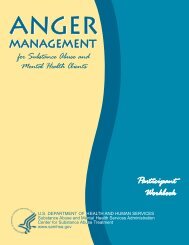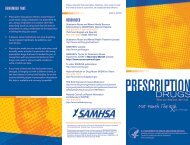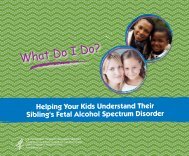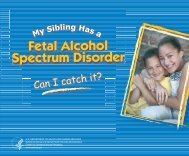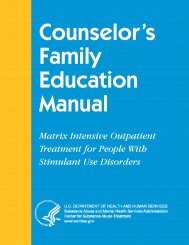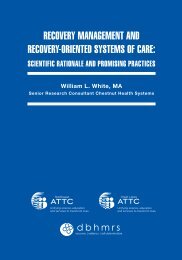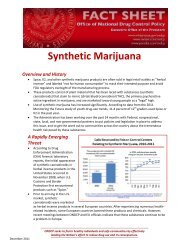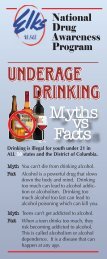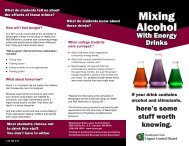Counselor's Manual for Relapse Prevention With Chemically ...
Counselor's Manual for Relapse Prevention With Chemically ...
Counselor's Manual for Relapse Prevention With Chemically ...
Create successful ePaper yourself
Turn your PDF publications into a flip-book with our unique Google optimized e-Paper software.
The abstinence goal. The first focus of group treatment should be <strong>for</strong> each patient to establishand maintain abstinence from alcohol and mood-altering drugs. This goal of recovery involvesthe identification of concrete problems and situations that could jeopardize abstinence, thedevelopment of specific plans <strong>for</strong> managing these problems, and the completion of skills trainingand assignments designed to develop skills in coping with these problems and situations.Reliance on group support. Patients need to develop a strong substitute dependency to replacetheir old dependency on alcohol and drugs. Patients will tend to develop a strong dependency onthe counselor as this substitute dependency. Group treatment should be used to transfer thisdependency from the counselor to the group. Group counseling <strong>for</strong> addicted patients should bedesigned to support the patient's ongoing involvement in AA, NA, and other support groups. Itshould also focus on building strong, positive, supportive relationships among the groupmembers.Admission and discharge criteria. There should be specific admission criteria that describe thetype of patient that is appropriate <strong>for</strong> treatment in group counseling. There should also bespecific discharge criteria that describe when a patient is ready to responsibly Agraduate" fromthe group.Issues that are inappropriate <strong>for</strong> group treatment. There are certain issues that are best dealt withindividually. This is due to the need <strong>for</strong> extreme confidentiality or a patient's inability to dealwith the issues in a group setting. Care needs to be taken, however, not to support a patient'scontinuing denial by allowing him or her to avoid talking about routine recovery issues in groupsessions.Role modeling by the counselor. The counselor should model the behaviors that he or she expectsfrom the patients.Supportive counseling. The early ef<strong>for</strong>ts of the group counselor should be directed toward allyinghimself or herself with the addicted patient's needs rather than with attacking defenses. Addictedpatients need basic support, education, communication training, and direction in recovery. Theseshould be provided with support rather than harsh confrontation.Group involvement. Eighty percent of the benefits of group treatment comes from becomingactively involved in utilizing the group process to help other group members to recover. Thisinvolvement interrupts chemically dependent self-centered behavior and provides training in theprocesses of problem solving and recovery. Many patients will automatically identify anddiscover solutions to problems in their lives by helping other patients cope with similarproblems. Only 20 percent of the benefits of group counseling comes from working on personalproblems.Note taking and tape recording in group. Addicted patients suffer from severe memoryimpairments. It is recommended that all patients take notes on important issues. Patients can alsotape record portions of the group sessions where they work on an issue and receive feedback.Listening to these tapes later often speeds up the counseling process.



